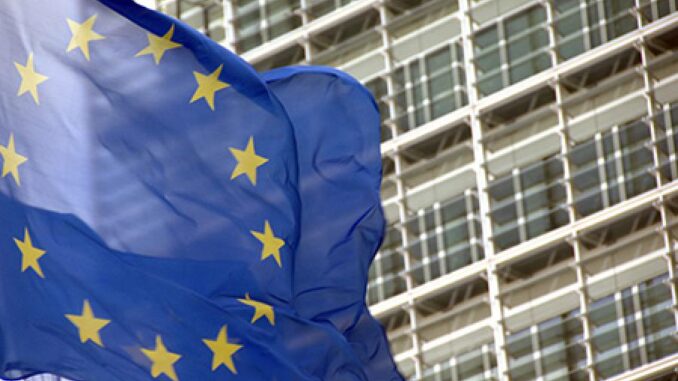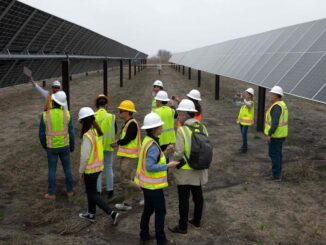
The European Union is accelerating its efforts to sever ties with Russian energy supplies amid ongoing geopolitical tensions stemming from the Ukraine conflict. In a significant policy shift, the European Commission has proposed banning imports of Russian liquefied natural gas (LNG) starting January 1, 2027—a full year ahead of the originally planned end-of-2027 deadline.
This move, part of the EU’s 19th sanctions package against Russia, comes after discussions between U.S. President Donald Trump and European Commission President Ursula von der Leyen, highlighting intensified transatlantic pressure to curtail Moscow’s energy revenues.
The proposal aims to “turn off the tap” on Russian fossil fuels, as von der Leyen has urged, to weaken the Kremlin’s financial capacity to sustain its military operations in Ukraine.
Overview of Current EU Sanctions on Russian Energy
Since Russia’s invasion of Ukraine in February 2022, the EU has implemented 18 packages of sanctions, progressively targeting Russia’s energy sector to reduce dependency and diminish export earnings.
Key measures include a ban on seaborne imports of Russian crude oil since December 2022, a prohibition on refined petroleum products from February 2023, and a price cap on Russian oil exports to third countries.
Coal imports were halted in August 2022, and restrictions have extended to dual-use goods, technology, and financial services that could support Russia’s energy industry.
As of September 2025, these sanctions have significantly reduced Russia’s energy exports to Europe. Russian pipeline gas flows via Ukraine and TurkStream have plummeted, and LNG imports, while not fully banned until now, have been subject to trans-shipment restrictions introduced in the 14th package in June 2024.
The EU has also sanctioned over 2,400 individuals and entities, including key energy firms, freezing assets and imposing travel bans.
Despite these efforts, Russia continues to export LNG to EU countries like France, Spain, and Belgium, accounting for about 15-20% of the bloc’s LNG imports in recent years, though volumes have declined as alternatives from the U.S., Qatar, and Norway ramp up.
The sanctions have not been without backlash. Russian sources argue they inflict more harm on Europe, exacerbating energy prices and economic strain, while Russia pivots sales to Asia.
Western analyses, however, point to a 40-50% drop in Russia’s energy revenues since 2022, forcing budget adjustments and currency devaluation.
Details of the New Sanctions Package
The proposed 19th package marks a bolder step, focusing on Russia’s remaining energy lifelines.
Beyond the accelerated LNG import ban, it includes a full transaction prohibition on major Russian energy giants Rosneft and Gazprom Neft, effectively barring EU entities from any dealings with them.
The package also targets Russia’s “shadow fleet” of aging tankers used to evade oil sanctions, adding 118 vessels to the blacklist, bringing the total to over 200.
Additional measures propose lowering the crude oil price cap from $60 to $50 per barrel and expanding bans on chemicals, technology, and banking services linked to Russia’s war economy.
This acceleration stems from U.S. influence, with Energy Secretary Chris Wright advocating for a swift phase-out to replace Russian LNG with American supplies, potentially within 6-12 months.
EU officials, including von der Leyen, emphasize that an earlier ban is “better sooner rather than later,” aligning with the 2022 REPowerEU plan to diversify energy sources.
However, final approval requires unanimous consent from all 27 EU member states, which could take weeks amid concerns over energy security and costs.
Will This Push President Putin to Peace Talks Sooner?
The core rationale behind these sanctions is to erode Russia’s war funding and compel President Vladimir Putin to the negotiating table for peace in Ukraine.
U.S. and EU leaders argue that cutting LNG revenues—estimated at €8-10 billion annually for Russia—will accelerate economic pressure, potentially forcing concessions.
French officials have echoed this, calling for measures to “suffocate” Russia’s economy and end the conflict.
Yet, evidence suggests limited impact on Putin’s stance. Western intelligence, including from the UK’s spy chief, sees “no evidence” that Putin desires genuine peace negotiations, viewing sanctions as ineffective in altering his long-term strategy.
Russia has adapted by redirecting energy exports to India, China, and Turkey, maintaining revenues despite Western curbs.
Russian media and officials dismiss the bans, claiming they will boomerang on Europe by raising LNG prices and that peace requires direct talks, not economic coercion.
Hungarian Foreign Minister Peter Szijjarto has noted that sanctions have hurt EU economies more than Russia or its allies.
Analysts from diverse sources indicate that while sanctions have slowed Russia’s growth and increased inflation, they haven’t crippled the economy enough to force a retreat from Ukraine.
U.S. Treasury Secretary Scott Bessent suggested secondary sanctions could end the conflict in months, but EU hesitation reflects doubts over their efficacy without broader global buy-in.
EU diplomats warn against forcing Ukraine into territorial concessions, labeling it a “trap” by Putin.
The Bottom Line
In summary, the accelerated LNG ban intensifies pressure but is unlikely to hasten peace talks imminently. Russia’s resilience and alternative markets suggest negotiations will depend more on battlefield dynamics and diplomatic channels than economic isolation alone.
As the EU pushes forward, global energy markets brace for shifts, with U.S. LNG poised to fill the gap but at potentially higher costs for European consumers.
Sanctions are ineffective, and President Putin is seeking new business deals; this is the only way to bring him to the peace table. Zelensky on the other hand has done everything he can to keep the war going.
Avoid Paying Taxes in 2025
Crude Oil, LNG, Jet Fuel price quote
ENB Top News
ENB
Energy Dashboard
ENB Podcast
ENB Substack






